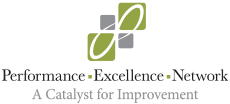2 million+ people have learned the Neuroscience of Human Decisions from Dr. Terry Wu!
- How can leaders rely on science to prevent employee burnout?
- Why do stressed employees become disengaged and unmotivated?
- Why do building resilience and practicing self care set people up for failure?
Stress has been taking a heavy toll on our well-being since the pandemic began. The extended lack of control and predictability has caused physical, emotional, and mental exhaustions. Burnout is rampant and disruptive. Employee disengagement is eroding business cultures. Attracting and retaining employees have become a top challenge. Leaders are seeking effective ways to reduce stress and prevent burnout.
In most businesses and organizations, the most common approach to stress reduction is to practice self care, but that approach has come up short for most leaders, most organizations. Talks and workshops focused on breathing, meditation and positivity are helpful, but we can’t end a crisis with deep exhalation, we can’t curb the inflation with more mindfulness, and we can’t reengage exhausted employees with just a positive attitude. Self-care has its place, but relying only on those approaches sets us up for failure because science has shown that stress is lowered by active preemption, instead of passive coping.
The Performance Excellence Network — in partnership with the Wisconsin Center for Performance Excellence — is pleased to announce a powerful new workshop: How Good Leaders Reduce Stress and Burnout, November 15, half-day in person (Twin Cities location, likely Bloomington)! The workshop will be facilitated by Dr. Terry Wu, neuroscientist, consultant & speaker. Also, consider special post-workshop coaching sessions — read more below!
Good leaders strive to decrease followers’ stress. Bad leaders do the opposite. Stress impairs our ability to make intelligent decisions. Stress inevitably leads to poor leadership decisions. All effective leadership skills boil down to reducing followers’ stress. However, in leadership development, little is taught about how to apply the latest science to manage both leaders and followers’ stress.
Dr. Wu has built a new, scientific framework of leadership that is centered on Why People Follow. He applies a holistic approach to understanding our innate drive to reduce stress and feel safe. His research has uncovered many proven techniques and skills that empower leaders to become more influential and effective. By employing the Science of Stress Reduction in leadership, leaders of all levels have seen more predictable and reliable outcomes.
New, Science-Proven Techniques to Reduce Stress and Burnout
In this workshop, you will learn the following techniques, and much more. Each is backed by scientific research and based on how the brain responds to and cope with stress.
The content of this workshop is original and unique. There is no recycled content from other trainers or books. Every technique is based on ample evidence, instead of rare anecdotes or personal experiences.
Part 1 ~ Why Effective Leaders Need to Know about Stress Reduction
- Discover what the stress response is and why it is more than “fight or flight.”
- Distinguish “being safe” from “feeling safe.”
- Recognize how stress causes irrational decisions.
- Examine the roles of control, predictability and progress in reducing stress.
- Put your followers in control by offering choices.
- Develop suitable frustration outlets during uncertain times.
- Seek and give social support to get you and your followers through a crisis.
- Avoid bad leadership decisions that cause more stress and burnout.
Part 2 ~ How Smart Leaders Prevent Burnout and Boost Engagement
- Create a new way to measure stress and assess stressors from a new perspective.
- Uncover stressors that lead to employee burnout.
- Compare burnout and depression and build burnout-reduction mechanisms.
- Gain insights into why stressed employees become disengaged.
- Restore your team culture by fostering a sense of belonging.
- Tackle the current compensation challenge by offering more control.
- Explore proven ways to make employees feel safe amid uncertainty.
- Mitigate the anxiety of returning to the office.
Investment is $245 for members ($490 for non-members). Discounts available for teams ($220/each for member teams of 3-4, and $195/each for member teams of 5+).
Also, consider a special “deluxe” coaching option! Dr. Wu will provide small group coaching, additional guidance, and facilitate peer-to-peer best practice sharing in a special (online) session two weeks after the workshop. Choose either Wednesday, November 30 or Friday, December 2 — both 11:30-1:00 CT and both online. Additional investment only $130/person, and space is limited to the first 20 who register!
Predict the outcomes of your leadership decisions with higher confidence! Invest in yourself, your team, and your organization. Improve your resilience and improve your outcomes by systematically managing your and your team’s stress!
Biography
2 million+ people have learned the Neuroscience of Human Decisions from Dr. Terry Wu!
Dr. Wu received his Ph.D. in Neuroscience from Vanderbilt University. He has a 35-year career in Neuroscience. Since the beginning of the COVID-19 pandemic, he has been studying how to apply Neuroscience to strengthen leadership. He found that leadership development had been focused primarily on teaching leaders how to lead, but not Why People Follow. He also found that leadership development was based on rare anecdotes, instead of science. These weaknesses were amplified by the pandemic and caused widespread leadership failures. Dr. Wu’s research into the Neuroscience of Leadership has uncovered many highly unique and valuable insights that empower leaders to make their leadership more predictable and successful.
Dr. Wu has spoken at 130+ conferences and corporate events. He turns complex scientific studies into interesting, easy-to-understand stories that his audiences can relate to. He makes Neuroscience practical and actionable. His highly engaging storytelling speaking style has been extremely well received by 2 million+ people around the world. For more information, visit here!




